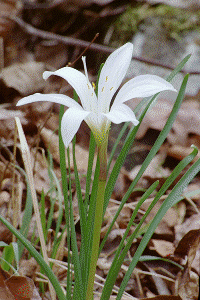 Since posting, “Chicken Soup and my Family,” I’ve received a few emails urging me to submit the story to the Chicken Soup for the Soul series. ( I’ve always been curious about the people who send me emails rather than leaving a comment--which could be the subject of another post about comments and how they spur further creation—but either way keep ‘em comin'!) However, I know very little about the series. And I must follow the advice that I’ve always given my students that before they submit their work to a publisher, they should always study the catalogue. And to be honest, I’ve never read through any of the books.
Since posting, “Chicken Soup and my Family,” I’ve received a few emails urging me to submit the story to the Chicken Soup for the Soul series. ( I’ve always been curious about the people who send me emails rather than leaving a comment--which could be the subject of another post about comments and how they spur further creation—but either way keep ‘em comin'!) However, I know very little about the series. And I must follow the advice that I’ve always given my students that before they submit their work to a publisher, they should always study the catalogue. And to be honest, I’ve never read through any of the books.This is not due to any snobbery on my part. Many of the books that fall into the category of popular fiction or popular non-fiction have a simple aim: to elicit an emotion. But as a fiction writer/poet/ blogger, I spend so much time learning how to elicit an emotion that I rarely have any time for stories/poems that exist only purely on an emotional level. Between work, work, and family, I have to choose my pleasures wisely. And most of the times, I’m interested in how the story is told, not what the story is about.
For example, I could write a story about a man named John Barnes, from Barbados who has been taking sleeping pills so that he can get a good night’s rest. John wakes up one morning to find a note on the pillow beside him. The note says, “Darling, you are the love of my life, but I have to leave you.” The note is from John’s wife. John searches the house for her, but cannot find her. He finally dresses himself and goes to work without eating breakfast.
While is driving to work, fighting back the tears and indigestion, John meets in a car accident and his car is totaled. It’s his fault. The police issue him a citation to appear in court.
John finally gets to work, and his boss, Tony, meets him at the door. Tony shakes his fist in John’s face and says, “Barnes, didn’t I tell you that if you were late one more time, I would fire you! You’re fired!” John begs his boss, but his boss calls security to escort John out of the building. John doesn’t have a car or health insurance and his molars are beginning to ache because he’s been grinding his teeth at night.
He finally makes it home after taking six buses, and finds his wife in bed with his best friend. He chases after his friend and by the time he gets back to the house, he gets a call that his best friend has shot himself because of the betrayal. John goes to the kitchen and drinks himself into a stupor. He awakens to find that his wife, overcome by all this, has overdosed on sleeping pills that he bought so that he could sleep at night. We leave John with a rope in his hand thinking whether he should kill himself or not.
Now, that is a sad story. But any con man can tell you a sad story. Have you received the email from the Nigerian businessman?
But what interests me is how the diction, rhythm and metaphors are used (poetry does this best) to make reading about the event/story/subject pleasurable.
Anyone who has every lived has a story to tell because all lives contain the essential elements of a story: a beginning, middle, and end. But it’s how the story is told—when it becomes that other thing that is bound by its own internal consonance (or twentieth century experiments in dissonance) that transforms the experience into a work of art. Many writers think that merely registering an emotion makes writing a work of art. But I could tell you about your mother’s ****, and you’d be very angry—registering an emotion—but it wouldn’t be poetry. Good writing, writing that becomes a pleasurable experience itself, is what I search for everyday and what I try to create. But it is always with a commitment to the islands about which Brathwaite, Walcott, Scott, and McNeill wrote, and the “missing generation” (of which I am a part) that Francis Wade speaks about in a recent post.
One of my guides in this process has been Derek Walcott. In his poem, “Love After Love,” Walcott uses the ritual of the Mass (or if you prefer, eating bread and drinking wine) to describe the process of growing through fragmentation to becoming whole again. Self-help books talk about recognition, unification, realization, thanksgiving, and peace. Walcott was years ahead of them. He gives an experience of meaning to a simple act that if consciously attended brings a kind of grace.
Love After Love
The time will come
when, with elation,
you will greet yourself arriving
at your own door, in your own mirror,
and each will smile at the other's welcome,
And say, sit here. Eat.
You will love again the stranger who was yourself.
Give wine. Give bread. Give back your heart
to itself, to the stranger who has loved you
all your life, whom you ignored
for another, who knows you by heart.
Take down the love letters from the bookshelf,
the photographs, the desperate notes,
peel your own image from the mirror.
Sit. Feast on your life.
Yet, there is something cold and calculating in this ability to dissect life as Walcott in Another Life describes himself at the peak of his adolescent love for Anna, “The hand she held already had betrayed/ them by its longing for describing her.” However, the work must be done, as Walcott also says in “Mass Man”:
Upon your penitential morning,
some skull must rub its memories with ashes,
some mind must squat down howling in your dust,
some hand must crawl and recollect your rubbish,
someone must write your poems.
***
Links: "Love After Love" ***
PoetryBlogging
Blog
Caribbean
Books
Caribbean writers
Race
Jamaica
Ethnicity
Americas
Books & Reading














